Driving in Morocco – a detailed guide for a safe road trip
Driving in Morocco culture is different from the usual Western norms. As I am a driver myself and have done dozen of road trips in Morocco, in this article, I will introduce you to driving in Morocco culture. As well, I will explain to you some unwritten driving rules that will be useful for your future safe road trip in Morocco.
In general, driving rules in Morocco remain the same as everywhere else in the world – stop at the red light, let pedestrians pass the street etc.; it’s just that in Morocco, these rules are rarely followed. Besides sneaky scooters and bikes, you always need to be aware of pedestrians, as in Morocco, it’s normal to cross the street anywhere. The most hectic traffic in Morocco is in Marrakech and Casablanca cities.
In Marrakech, you will encounter many scooters and bikes that don’t follow the rules, and jump in front of you anywhere. In Casablanca, you will probably be stuck in never-ending traffic jams and rude drivers. Casablanca is the largest city in Morocco, with a total population of 4 mln people, as well as one of the largest and most important cities in Africa, both economically and demographically. Therefore in Casa, people are always in a rush for work and commute daily. Opposite Morocco’s capital Rabat, the north Tangier and the south coast towns Agadir and Essaouira, where it is considerably easier to drive, and people tend to follow driving rules.
Driving in Morocco – my story

Although I obtained my driving license in Lithuania a long time ago, I had no driving experience (except for driving from my parents’ village to another village, which is a straight road with almost no traffic). I slowly started to practice driving in Marrakech, and to make myself feel better, I also took driving lessons while in Lithuania. My instructor in Vilnius was horrified that I didn’t always stop at pedestrian crossings, manoeuvred between lanes without signalling, or tailgated other cars.
I explained that this is how everyone drove in Morocco, and I asked him to teach me how to parallel park because this is how most people park on the streets here. Although I’m already really good at navigating Moroccan roads, I would be really scared to get behind the wheel when I return to Lithuania. It would take a lot of time to adjust to following all the rules 🙂
To return to my example, I dove into the streets of Marrakech after just a few driving lessons, but I certainly wouldn’t recommend doing that, especially with a rental car. Driving in Morocco is all about quick reaction, situational awareness, and alertness. Imagine driving down a street with scooters on all sides of you (at least in Marrakech) and pedestrians walking across the street – if that sounds scary, let your colleague drive or hire transport with a driver.
Fuel and gas stations in Morocco
Fuel in Morocco is cheaper than in Lithuania, but from June 2022, as in the rest of the world, fuel prices have risen sharply. Unless you’re travelling in the mountains and remote places, it’s best to rent a smaller diesel car in Morocco to make your journey cheaper.
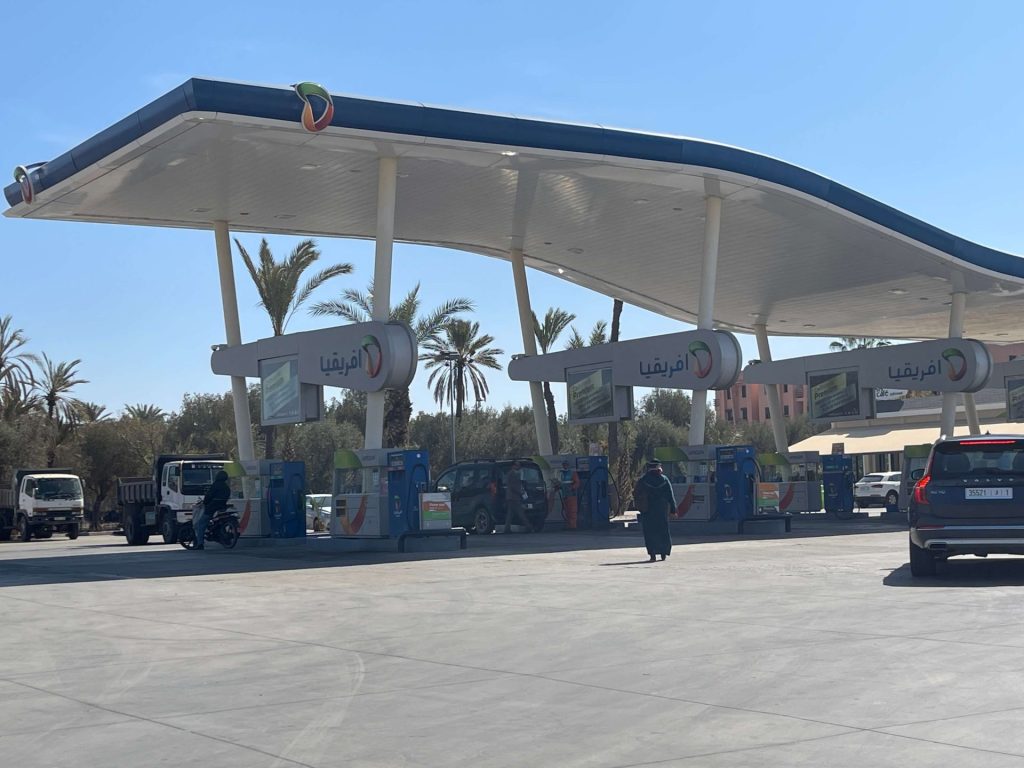

Gas prices in Marrakech (2022-10-31):
A litre of gasoline costs: 15,74 DH
A litre of diesel costs: 14,90 DH
(10 DH (MAD) = almost 1 Euro)
Morocco is full of gas stations, most of them modern, with separate cafés. You can also pay by bank card at most gas stations. Unlike in Europe, in Morocco, you don’t have to fill the tank. The gas station worker will do it for you. You also don’t have to tip the staff for this service, it’s just what the system is there.
When you arrive at the gas station, pull up to a pump; an employee will often signal to you by waving. Then, tell to the gas station attendant how many dirhams you want to spend, and open the gas tank cover. That’s it, then you pay, and you don’t even have to get out of the car. Very often, when filling up the gas tank, the attendant will also clean your windows (without even asking), in which case you should leave a few dirhams as a tip. Or ask them to stop immediately when you see your windows being cleaned.
Parking in Morocco
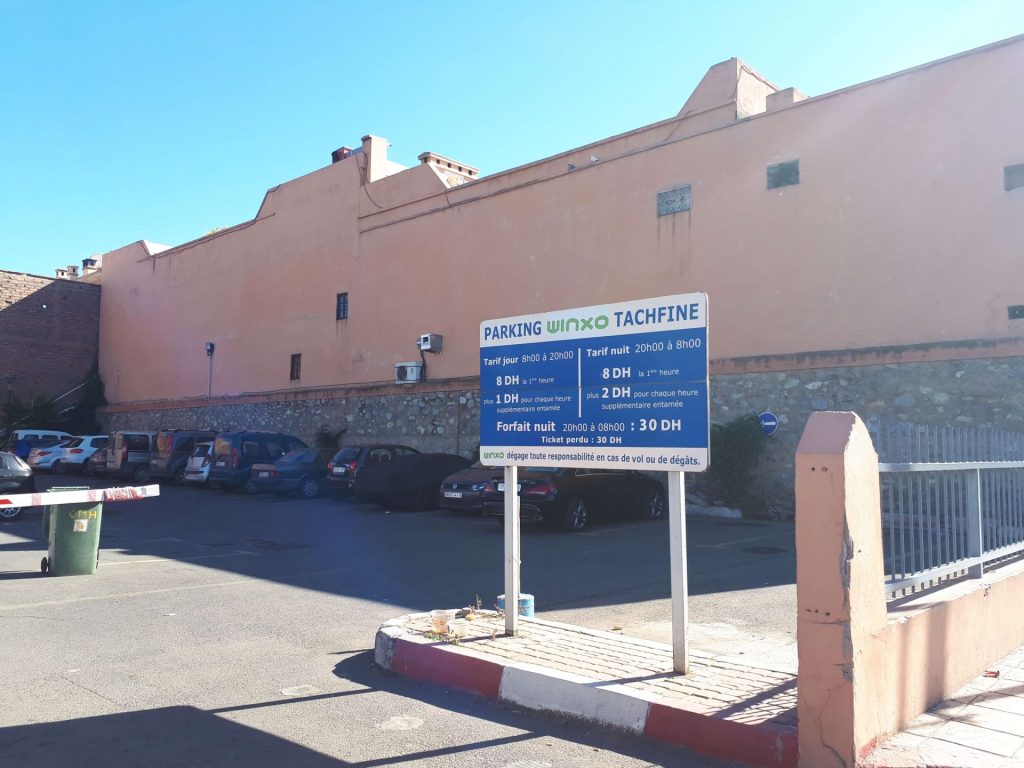
Parking in the streets
Morocco has a different parking system than Europe. In most Moroccan cities, except for the major cities of Casablanca and Rabat, there are street parking attendants who help you park on the street and keep cars safe. They usually wear brightly colored vests. In most cities, you have to pay them 2 DH for parking during the day (no matter how many hours) and 3 DH for parking and keeping the car safe at night. If you leave your car for more than a day, inform the attendant and ask about the price.
In some towns, especially in resort villages, the price for on-street parking is slightly higher, usually written down, or I recommend you always ask. If the car is very dirty, you can ask the attendant to wash it, or they will offer to do it themselves. Washing a car usually costs 20 DH (outside only), or 40 DH for the inside at a car wash.
If you take your car to a restaurant or nightclub, they usually have their own valet parking service, which costs between 10 and 20 Dirhams depending on the location. Payment machines are on most of the main streets in Casablanca and Rabat.
By the way, parallel parking is prevalent on Moroccan streets, with extremely tight spaces between vehicles, so there is always a parking attendant to help you. My advice is that when you see a parking space you want to park in, first look around to see if there is an attendant. Never leave your car parked if the attendant cannot see you. Ensure you find him or her and at least give them a wave. In some of Morocco’s smaller towns with little traffic, you won’t find payment machines or parking attendants on the streets. Then you can park for free.
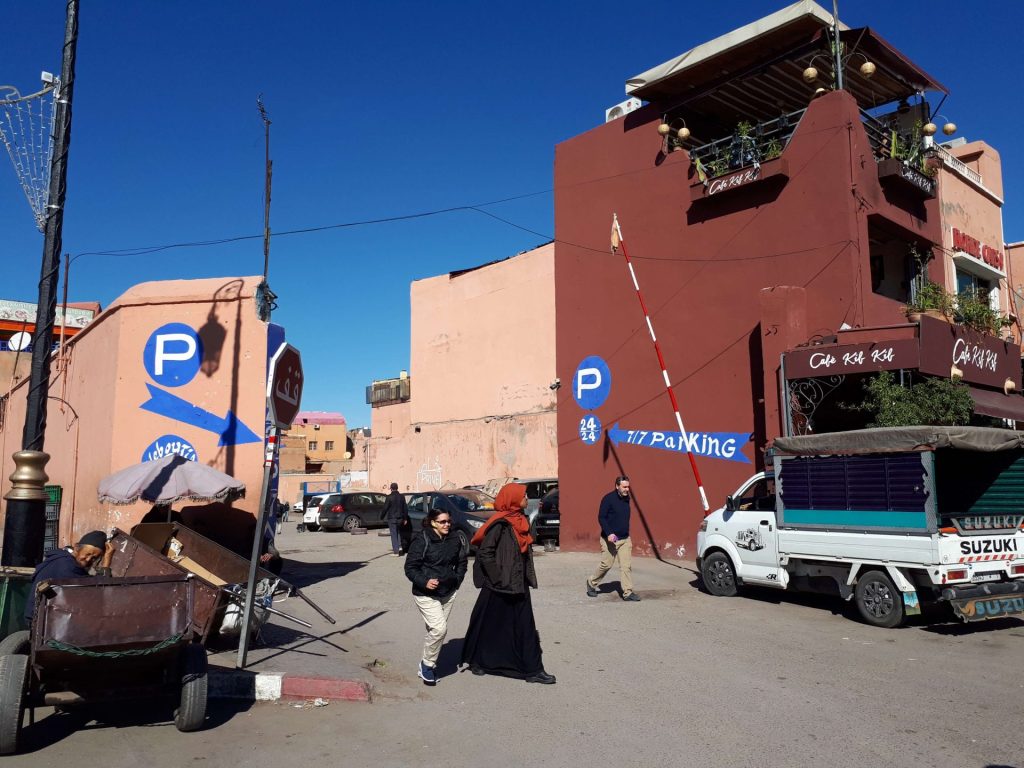
Parking lots
In Morocco, parking is not only available on the streets but also in special parking lots. You’ll recognize them by the blue P signs. They often have fixed and written parking prices, otherwise be sure to ask before you leave your car. If you only want to park for a few hours, the price will be higher than on-street parking. However, I personally have always found parking in car parks much safer and easier, except that they are harder to find.
Handing over the keys
I want to mention the aspect of handing over your car keys. Sometimes, especially in popular car parks, or even on streets where there is a lot of traffic, and especially late at night when everyone is going out to restaurants, the attendant will ask you to leave your car key in case they need to rearrange cars, move them, or allow others to leave. This is very normal practice in Morocco, so if you don’t feel comfortable leaving your car keys, look for another parking space.
Roads in Morocco
The road infrastructure in Morocco is well-developed, and you can always choose toll highways when driving to the major cities. Going from Marrakech to Essaouira, you can take the ordinary road, which will be much slower, or the highway, which has a speed limit of 120km/h.
You can calculate the cost of the Moroccan sections of the toll motorways on this page adm.co.ma/fr/. For example, from Marrakech to Agadir the highway costs 72 DH, from Tangier to Marrakech 217 DH, etc. The highways are paid for at special toll booths at the entrance and can be paid either in cash or by card.
Speed limits in Morocco
The general speed limits in Morocco are:
60 km/h within urban areas.
100 km/h outside urban areas, including expressways (voie express).
120 km/h on highways (Autoroute).
DRIVING LICENSE IN MOROCCO
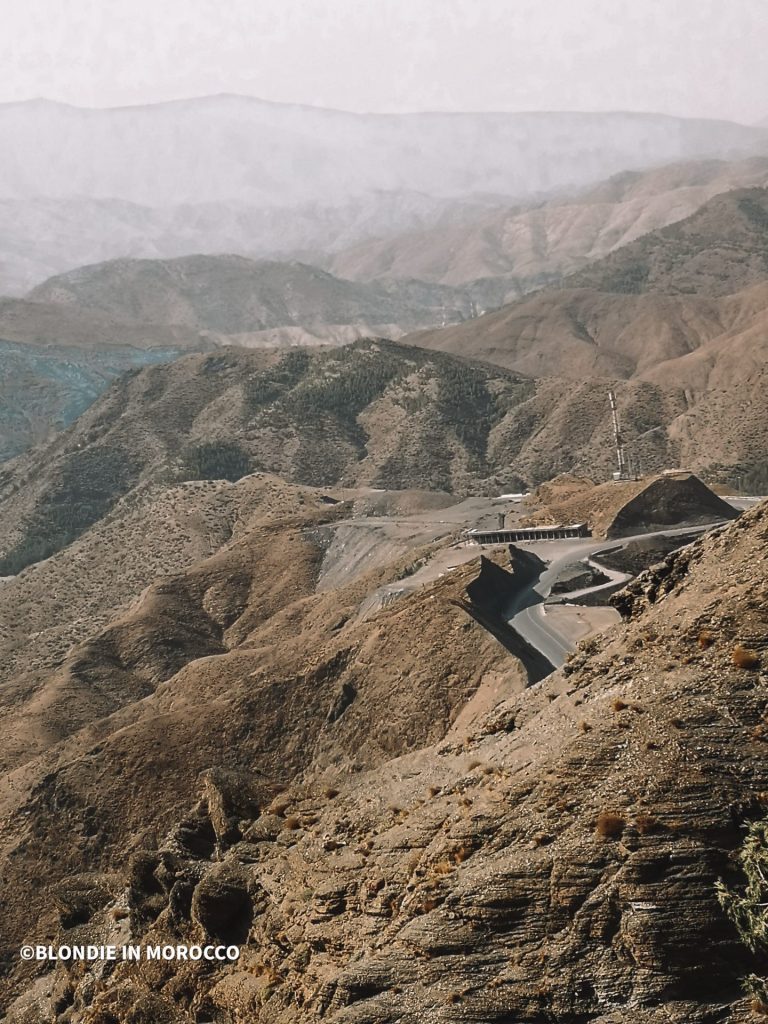
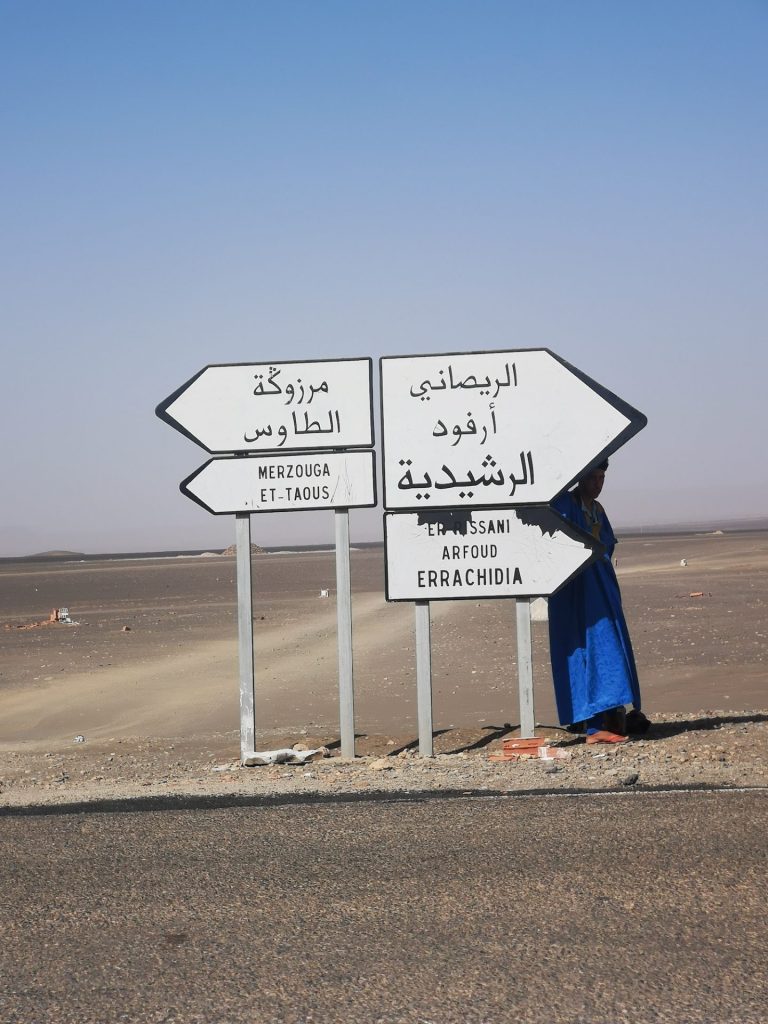
Most travellers can drive in Morocco with a driving license issued in Europe or elsewhere (it is not required to have an International Driving Permit (IDP) for Morocco.). No matter how long you stay in Morocco, as long as you are here legally as a tourist and leave every 3 months, you can always drive with your foreign driving license.
Renting a car in Morocco depends a lot on your driving experience. If you have only recently acquired your license, car rental outlets in Morocco will make it harder for you to rent a car or will ask you for a higher deposit. More about how to rent a car in Morocco you can read in my article Rent a car in Morocco – shall you or shall not?
However, if you decide officially to become a resident and obtain the residency permit called carte Sejour , you will need to change your foreign driving license to the Moroccan one. After getting the carte Sejour, you are obliged by Morocco law to exchange your driving license for a Moroccan one within a year. You can only do this by retaking your driving test (in French or Arabic) in Morocco.
The Moroccan authorities passed this law in 2010, causing headaches for many foreigners who are officially residents here. Only residents of certain countries can exchange their driving license for a Moroccan one without taking the test. This paragraph only applies if you become an official Moroccan resident. Almost all tourists can drive with their country’s issued driving license.
DRIVING TO MOROCCO WITH YOUR CAR?
Travelers arriving in Morocco by car from any country in Europe or elsewhere in the world can keep their foreign vehicle in Morocco for a maximum of 6 months per year. However, you can bring your car to Morocco in, let’s say, August and stay for 1 year because after January 1st, the new year cycle is counted. After that, the car must stay in Europe for 6 months before returning to Morocco. In comparison, a traveller can stay officially in Morocco for 3 months, then leave the country for only a day and return, thus extending the 3-month period. This rule does not apply to cars.
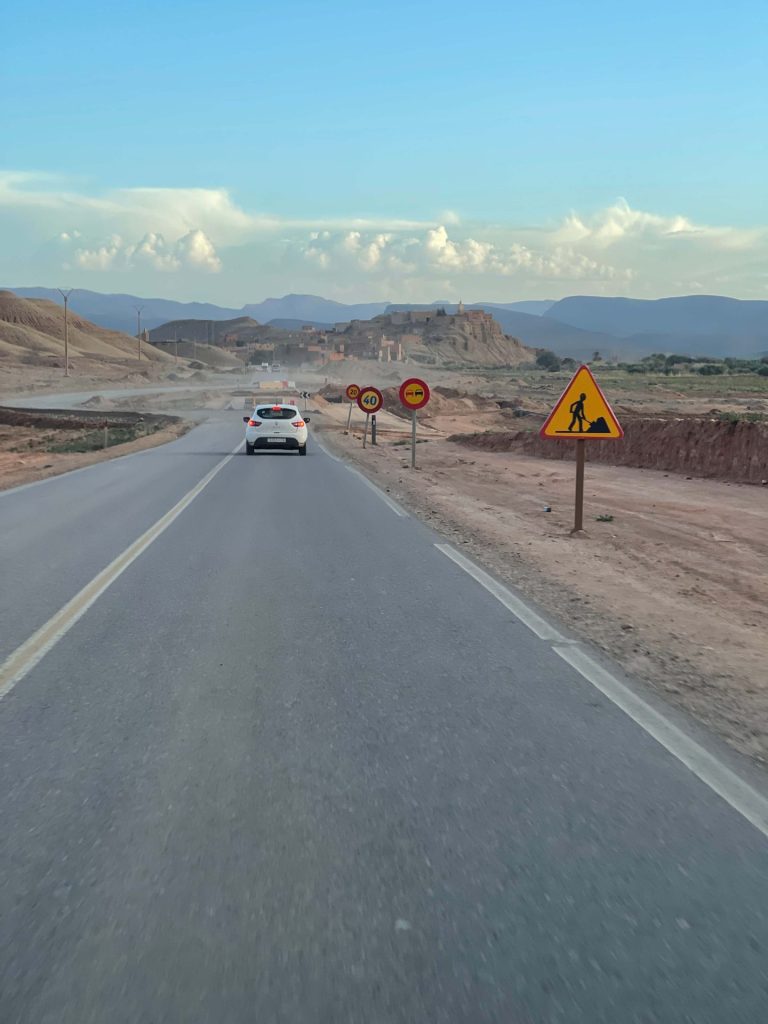
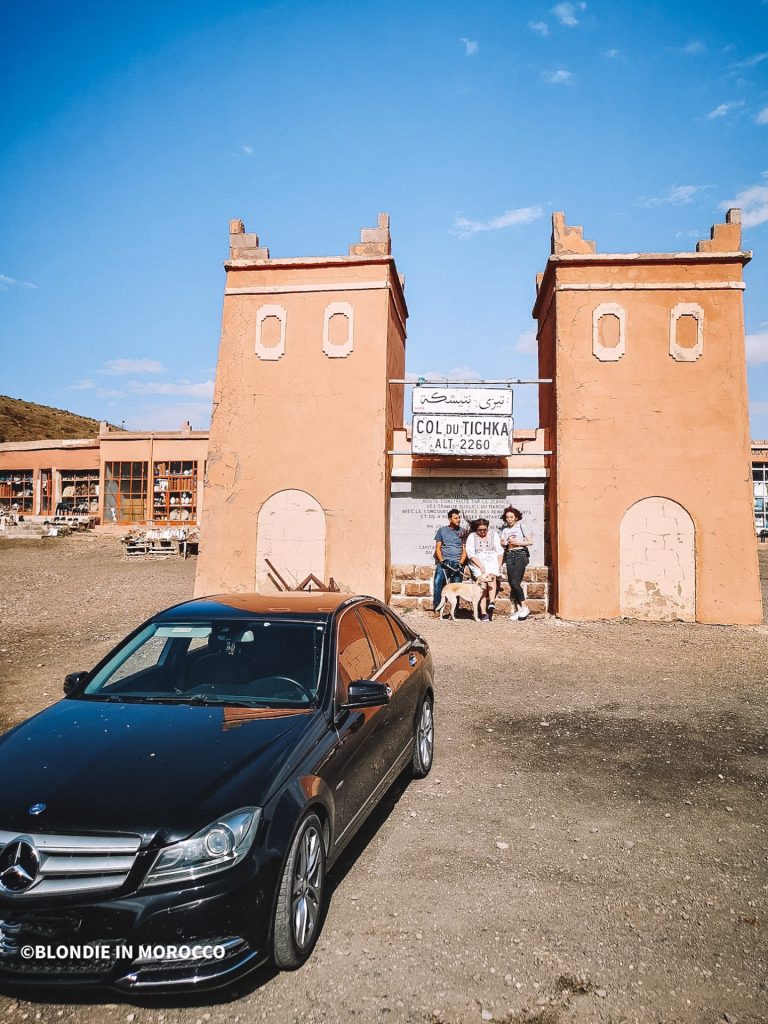
If you arrive in Morocco with your car, it will be automatically registered to your passport at the border. This means you cannot leave the country without your car. If you decide to return home by plane, you will have to prove at the border that the car has not been sold, and you may have to show your car keys or other documents.
You can try to sell your foreign car in Morocco, but it’s unlikely that anyone will buy them because customs fees on imported transport are insanely high. Some travellers come to Morocco with their old cars and think they can sell/leave them in Morocco. A clever plan, but old model cars are even more complicated to sell, as import taxes increase to older cars due to environmental reasons.
I have described the rules for buying a car in Morocco in more detail in my English-language article How to buy a car in Morocco?
Driving culture in Morocco
Let’s talk about the most interesting part of driving in Morocco – the driving culture and its rules.
Pedestrian crossings
In Morocco, cars rarely stop to allow pedestrians to cross at crosswalks, at least in Marrakech and Casablanca. However, the situation is slightly better in Tangier, Rabat, and Agadir, where drivers respect pedestrians and stop to let them pass. In Marrakech, you will even be honked at if you stop to let a pedestrian cross at a crosswalk. I always stop, but sometimes it is impossible because of the traffic. Many pedestrians are even surprised that a car stops to let them pass and don’t go. Then you have to signal with your hand and show them that it is safe to cross.
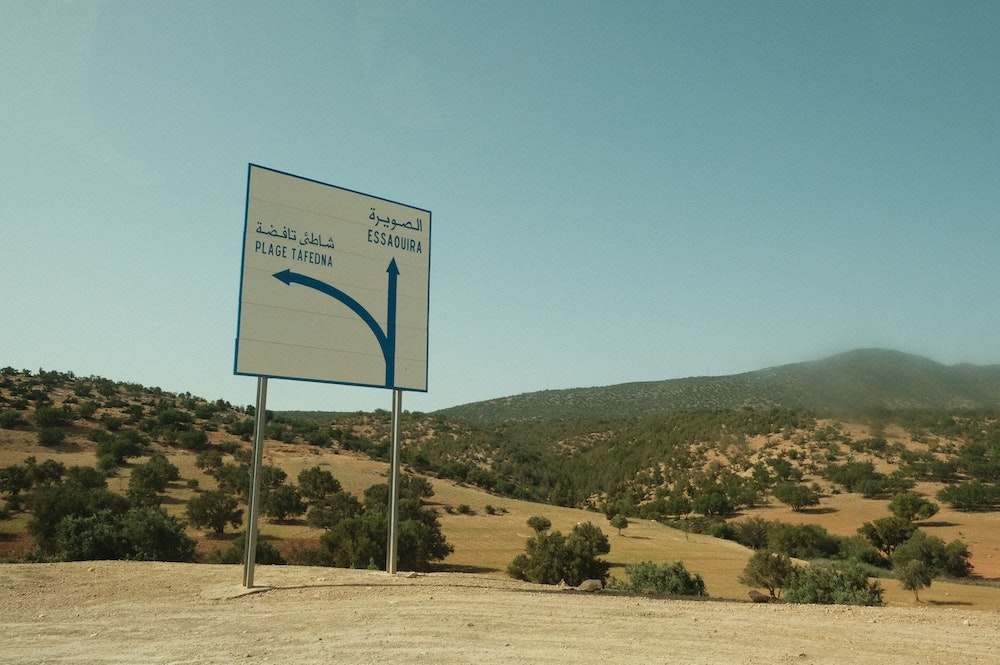
An interesting aspect is that in Morocco, pedestrians like to walk on the streets, not on pedestrian crossings or sidewalks. Therefore, very often, when driving on the road, you have to honk at the pedestrians walking on it (walking, not crossing), and scare away an occasional dog or donkey that runs out.
Scooters and other vehicles
Marrakech in Morocco is famous for its chaotic traffic, involving not only cars but also scooters, mopeds, bicycles, horses, mules, carriages, donkeys, and pedestrians, who often imagine they can cross the street wherever they want. Scooters are the most dangerous in Marrakech because their drivers do not respect any rules, they like to enter the roads and cut off cars at any time… The most interesting thing is that in a collision between a scooter and a car, it will always be the car driver who is at fault, even if it’s not their fault at all. So be careful when driving.
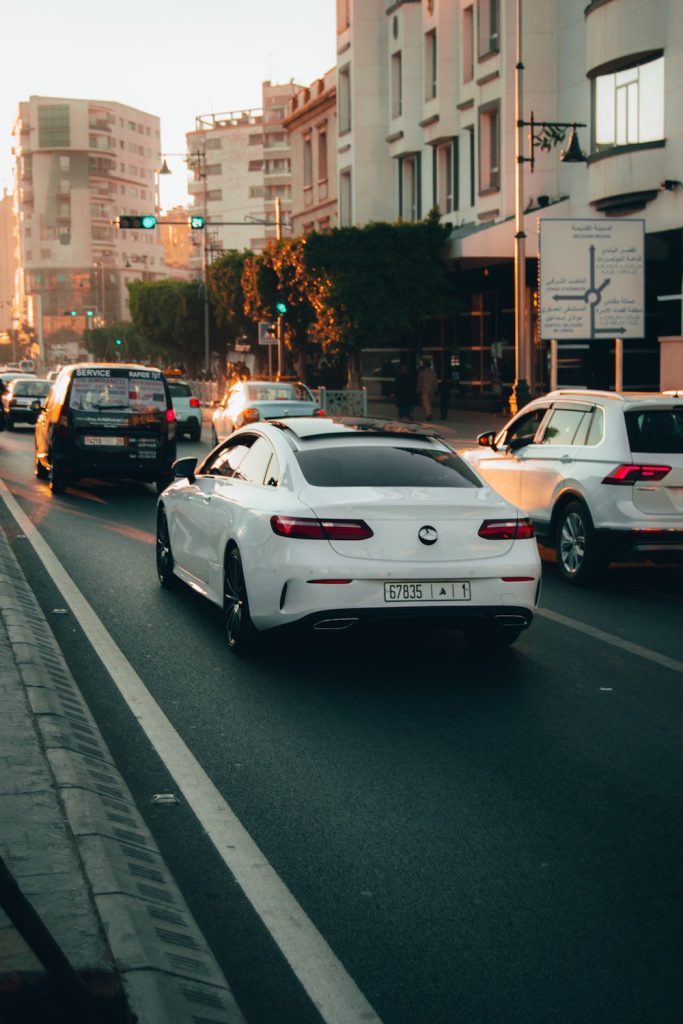

Road lanes
While driving in In Morocco, especially in Marrakech, you’ll notice that most people drive in the middle of the lanes. So when you want to overtake that kind of “middle road” driver, you need to horn, flash or show other signs, so they move to their own one line. Often in Marrakech, it is done so scooters and motos have more space to drive on the side. Or alternatively, like I am often laughing, Moroccan drivers are often so distracted or undecided about where they want to turn that they drive in the middle of the road most of the time 🙂
I forgot about drivers showing turn signals when overtaking other cars or turning to another traffic line. Often drivers like to turn to another traffic line without any signal. Or even showing a left turn signal while turning right.
Car horn
The use of car horns in Morocco is extensive and frequent. The traffic lights have turned green, and the first person in line isn’t moving? Beep. A driver is driving in the middle of the road and isn’t moving over? Beep. Does a scooter keep getting in front of the car? Beep. In a word, you’ll hear car horns everywhere, all the time.
Alertness
The most important rule when driving in Morocco is to be alert. And never trust other drivers. Just because you have the green light doesn’t mean that some idiot driver won’t suddenly decide to take a wrong turn or stop to look when turning off a side road. A pedestrian can jump out into the street anywhere at any time, just like scooters.
Interestingly, although traffic in Morocco is a bit chaotic, drivers respect each other, and accidents are rare.


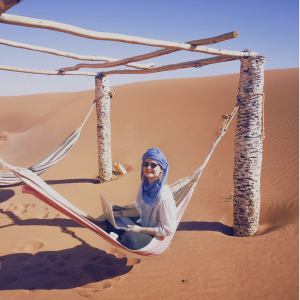
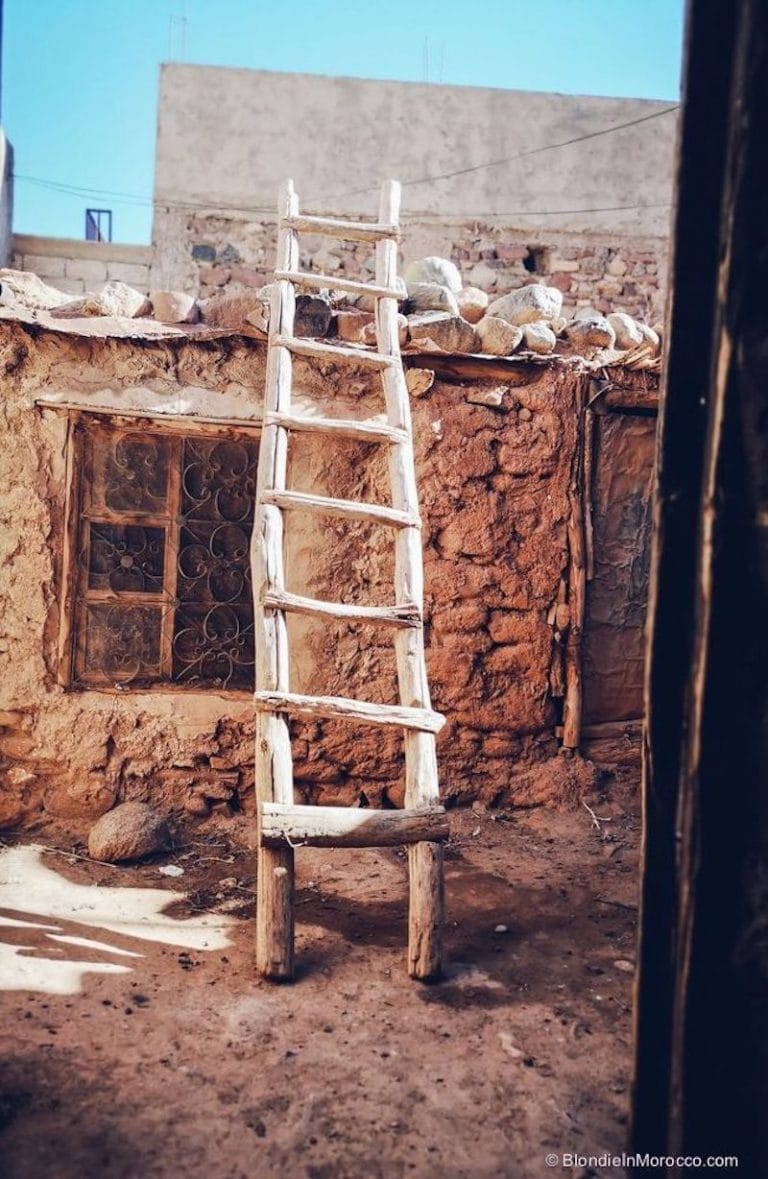

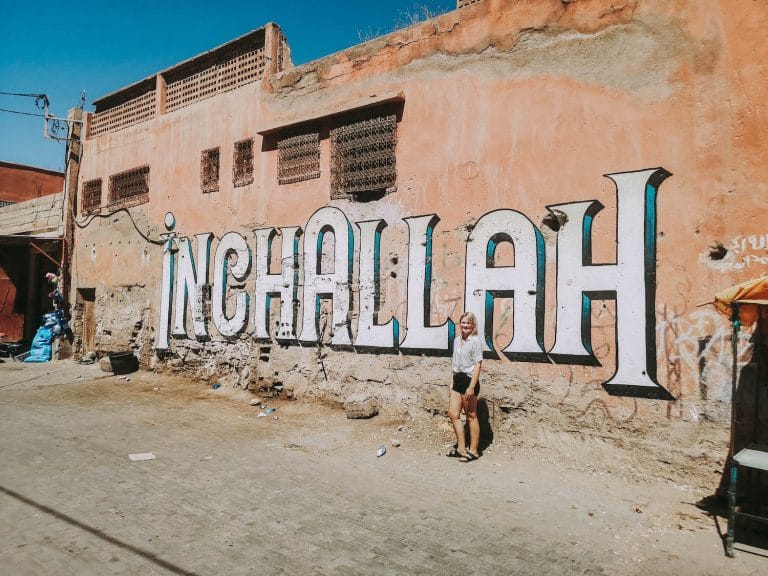
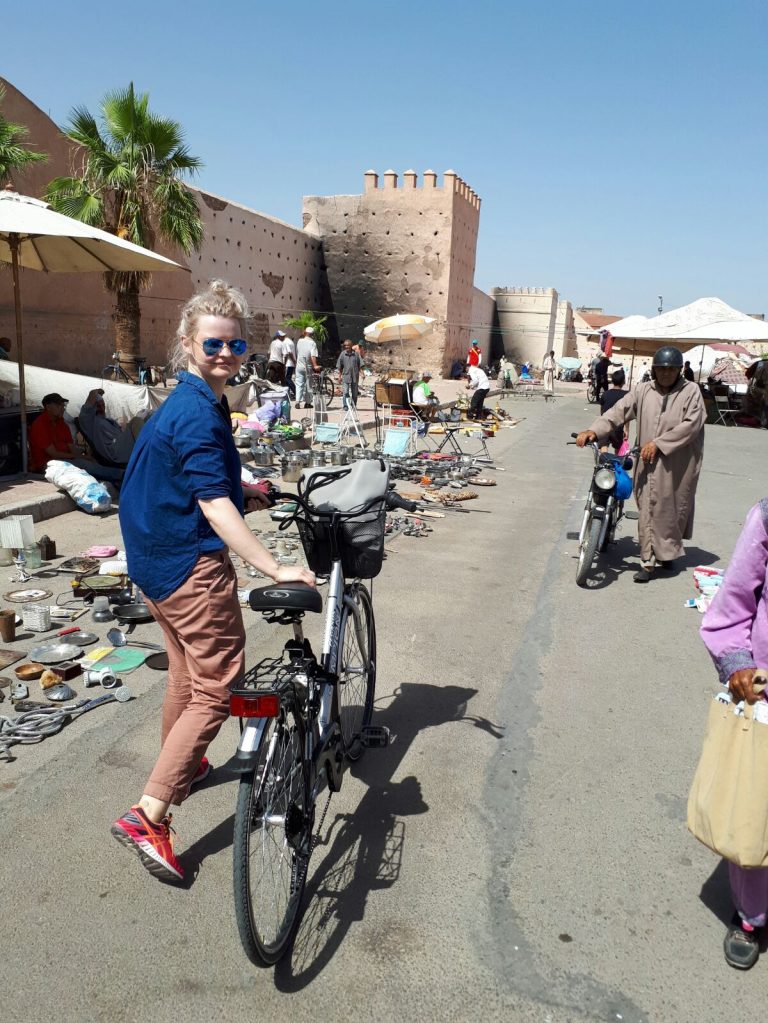
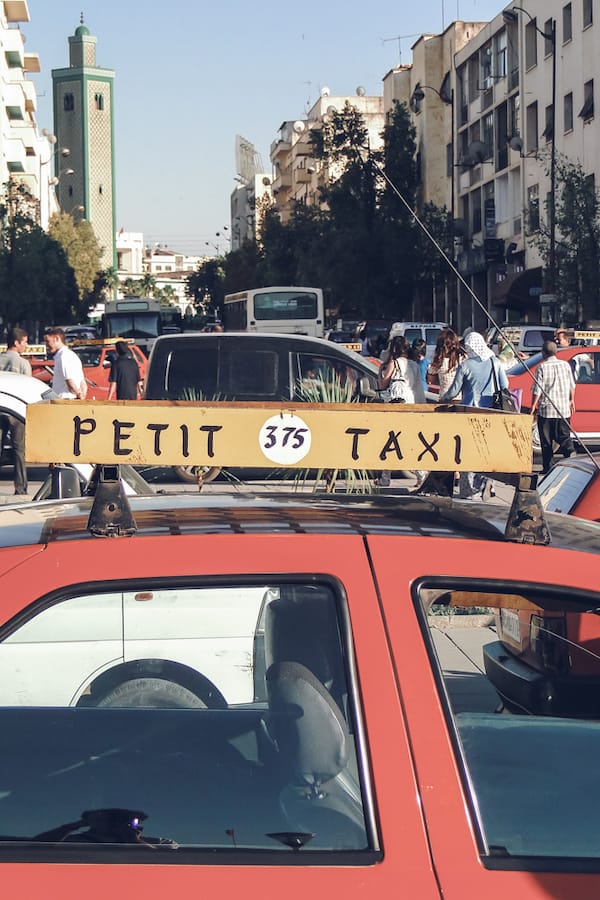
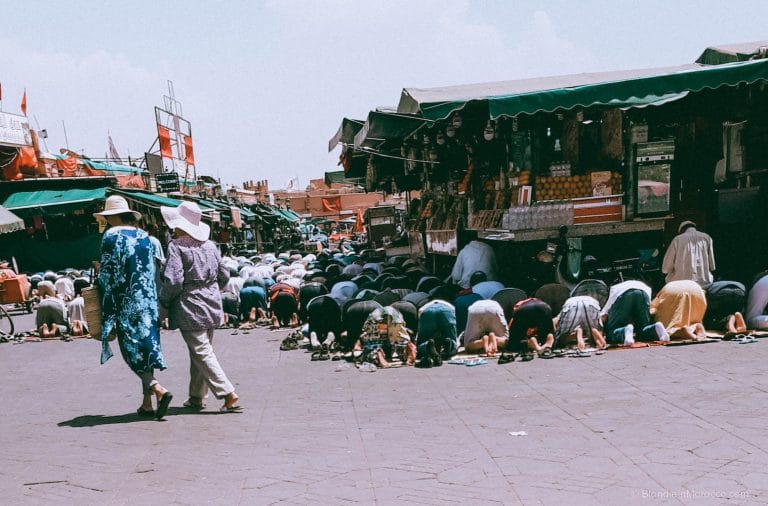
Thanks for a useful post. We’re heading there on a road trip in 2024, so this is very informative.
Same! Helped a lot thank you
I am happy my article was usefull!
Thank you, very helpful! And crazy idea to learn to drive in Marrakech! 😉
Happy my post was helpful!